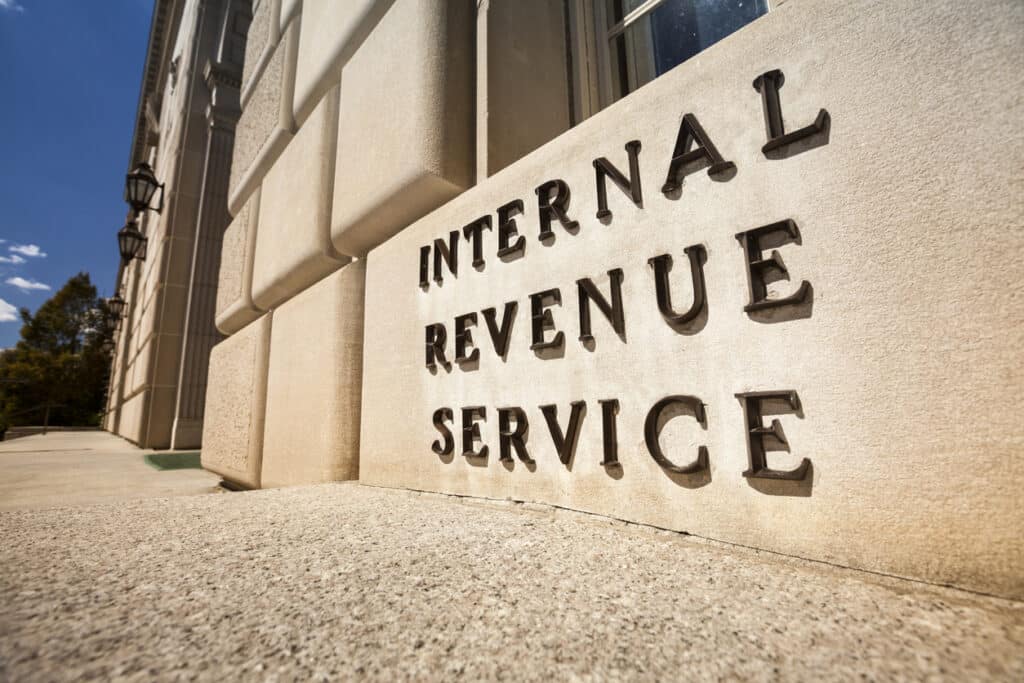The Internal Revenue Service announced on April 4, that the director of the agency’s whistleblower office, Lee D. Martin, would be leaving his post.
Although there hasn’t been any announcement as to who will take over as the new director, this transition in leadership offers an opportunity to reflect on the history of the IRS Whistleblower Program and potential improvements for the program’s future.
Despite the Treasury Department having the authority to pay monies to taxpayers “for detecting and bringing to trial and punishment persons guilty of violating the internal revenue laws or conniving at the same” since 1867, it was not until more recently that a critical change occurred for the benefit of tax whistleblowers.
In 2006, through the Tax Relief and Health Care Act of 2006, Internal Revenue Code Section 7623(b) was enacted, thus creating the mandatory awards program at the IRS.
In short, Section 7623(b) requires the Treasury to pay an award to tax whistleblowers if the agency proceeds with any administrative or judicial action based on information brought forward by the informant. The tax whistleblower is entitled to an award in the amount of at least 15 percent, but not more than 30 percent of proceeds collected from the action.
The idea for a mandatory rewards program at the IRS stemmed from the success of one of the most successful anti-fraud provisions: the False Claims Act. The False Claims Act has history rooted in the Civil War-era; however Senator Chuck Grassley led an effort in the mid-1980s to modernize the act to allow for mandatory payments for whistleblowers (among other guarantees).
Senator Grassley, known by many as a patron saint for whistleblowers, turned his eyes toward the Treasury’s handling of whistleblowers. A review by the Senate Finance Committee, chaired at the time by Senator Grassley, led to dismal marks, as the IRS’s handling of whistleblower claims fell short in terms of basic management and relevant guidelines.
Senator Grassley initially introduced the idea for what is now Section 7623(b) back in 2004, through the Jumpstart Our Business Strength (JOBS) Act, S. 1637. Although that provision failed to become enacted, the three core pillars of the current tax whistleblower program, a mandatory reward, payments to informants ranging between 15 and 30 percent of collected proceeds, as well as judicial review of award determinations, came to pass in 2006.
The tax whistleblower program of present day certainly has seen success, with the IRS reporting that since 2007, the program has paid awards to tax whistleblowers totaling $1 billion while collecting more than $6 billion from noncompliant taxpayers. However, tax whistleblowers today still face difficulties when trying to bring tax fraud to light for the benefit of the U.S. government.
Beyond the timeframe from claim submission to final determination taking several years, tax whistleblowers face challenges when attempting to appeal determinations made by the IRS Whistleblower Office. Should a tax whistleblower wish to contest a final determination, whether it’s a denial or simply an award calculation they disagree with, the U.S. Tax Court is the required venue.
Tax whistleblower matters before the U.S. Tax Court are subject to an “arbitrary and capricious” review standard, as opposed to what many believe should be a “de novo” standard. This standard fails to allow for the Tax Court to review crucial facts surrounding a whistleblower’s claim, filed using a Form 211 with the agency.
A “de novo” review standard would allow for the Tax Court to look at the necessary facts and make its own determination while giving the tax whistleblower an opportunity to defend the merits of their claim more comprehensively.
Beyond the need for a different review standard upon appealing a determination from the IRS, the agency’s whistleblower office simply needs more resources to review and investigate tax whistleblower claims, which come in by the thousands every year.
Efforts to improve the IRS Whistleblower Program have already been proposed on Capitol Hill. For instance, a bipartisan bill, the IRS Whistleblower Program Improvement Act, has been put forward by Senate Finance Chairman Ron Wyden (D-OR); Senator Grassley (R-IA) as well as Congressmen Mike Thompson (D-CA) and Mike Kelly (R-PA) in the House.
The proposed legislation provides for “de novo” review, exempts whistleblower awards from budget sequester, gives whistleblowers submitting a petition to the U.S. Tax Court presumption of anonymity, forces the agency to issue award determinations within a year of proceeds being collected, among other critical changes.
The program has done tremendous good in the past, but the immense amount of untapped potential should be addressed immediately.
Tax whistleblowers should feel confident that they are being heard and that the risks they are taking by coming forward are worth it in the end. The changes proposed by the IRS Whistleblower Program Improvement Act would be an incredible step in the right direction.
